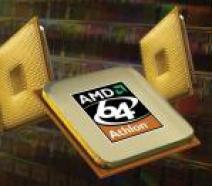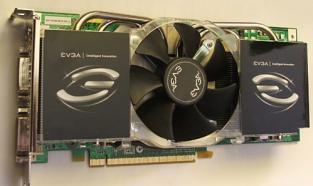OOPS! You forgot to upload swfobject.js ! You must upload this file for your form to work.
Car autopilot inspired scientists to create a navigation system for blind pedestrians
![]()
|
xtreview is your : Video card - cpu - memory - Hard drive - power supply unit source |
|
|||
|
|
||||
 Recommended : Free unlimited image hosting with image editor
Recommended : Free unlimited image hosting with image editor
|
xtreview is your : Video card - cpu - memory - Hard drive - power supply unit source |
|
|
|
|
||
|
Xtreview Support  N-Post:xxxx Xtreview Support        |
CAR AUTOPILOT INSPIRED SCIENTISTS TO CREATE A NAVIGATION SYSTEM FOR BLIND PEDESTRIANS |
| Please Feel Free to write any Comment; Thanks  |
Tesla prepares to begin testing electric trucks with autopilot (2017-08-10)
In Japan, Toyota is trying to attract local staff to develop an autopilot (2017-08-04)
Tim Cook called the autopilot the mother of all artificial intelligence (2017-08-02)
Bosch notes increased demand for components for autopilot systems (2017-07-05)
NVIDIA strengthens links with component manufacturers for autopilot systems (2017-06-28)
In the development team of the Tesla autopilot, important personnel reshuffles took place (2017-06-22)
Creator AMD Zen is now working on the autopilot Tesla (2017-06-06)
Baidu will cooperate with Bosch and Continental in the field of autopilot creation (2017-06-02)
The principles of working with crypto-currencies will be adopted by the developers of autopilot (2017-05-24)
BMW believes that the number of global autopilot platforms will be limited (2017-05-17)
Toyota will use the platform NVIDIA DRIVE PX to create an autopilot (2017-05-11)
Samsung Electronics has received permission to test autopilot in South Korea (2017-05-03)
Autopilot Apple will be able to store information about the moments preceding the accident (2017-04-22)
NVIDIA is ready to implement the autopilot in transport at a faster pace (2017-03-17)
Bosch will use in its system autopilot processor Tegra generation Xavier (2017-03-16)
Intel forks to buy a developer of cameras and processors for autopilot (2017-03-14)
Chapter NVIDIA counted how many Tegra processors will need to create a complete autopilot (2017-02-10)
Car autopilot inspired scientists to create a navigation system for blind pedestrians (2017-02-07)
To develop autopilot Suzuki will cooperate with Toyota (2017-02-05)
Tesla Motors has accused the former head of autopilot program in the theft of data (2017-01-28)
![]()
To figure out your best laptops .Welcome to XTreview.com. Here u can find a complete computer hardware guide and laptop rating .More than 500 reviews of modern PC to understand the basic architecture


7600gt review
7600gt is the middle card range.
We already benchmarked this video card and found that ...

 geforce 8800gtx and 8800gts
geforce 8800gtx and 8800gts  Xtreview software download Section
Xtreview software download Section  AMD TURION 64 X2 REVIEW
AMD TURION 64 X2 REVIEW  INTEL PENTIUM D 920 , INTEL PENTIUM D 930
INTEL PENTIUM D 920 , INTEL PENTIUM D 930  6800XT REVIEW
6800XT REVIEW  computer hardware REVIEW
computer hardware REVIEW  INTEL CONROE CORE DUO 2 REVIEW VS AMD AM2
INTEL CONROE CORE DUO 2 REVIEW VS AMD AM2  INTEL PENTIUM D 805 INTEL D805
INTEL PENTIUM D 805 INTEL D805  Free desktop wallpaper
Free desktop wallpaper  online fighting game
online fighting game  Xtreview price comparison center
Xtreview price comparison center Lastest 15 Reviews


Rss Feeds
Last News
- The new version of GPU-Z finally kills the belief in the miracle of Vega transformation
- The motherboard manufacturer confirms the characteristics of the processors Coffee Lake
- We are looking for copper coolers on NVIDIA Volta computing accelerators
- Unofficially about Intels plans to release 300-series chipset
- The Japanese representation of AMD offered monetary compensation to the first buyers of Ryzen Threadripper
- This year will not be released more than 45 million motherboards
- TSMC denies the presentation of charges from the antimonopoly authorities
- Radeon RX Vega 64 at frequencies 1802-1000 MHz updated the record GPUPI 1B
- AMD itself would like to believe that mobile processors Ryzen have already been released
- AMD Vega 20 will find application in accelerating computations
- Pre-orders for new iPhone start next week
- Radeon RX Vega 57, 58 and 59: the wonders of transformation
- ASML starts commercial delivery of EUV-scanners
- The older Skylake processors with a free multiplier are removed from production
- Meizu will release Android-smartphone based on Helio P40
- AMD Bristol Ridge processors are also available in American retail
- The fate of Toshiba Memory can be solved to the next environment
- duo GeForce GTX 1080 Ti in GPUPI 1B at frequencies of 2480-10320 MHz
- New Kentsfield overclocking record up to 5204 MHz
- Lenovo released Android-smartphone K8

HALO 3 HALO 3 - Final Fight!

PREY Prey is something you don t often see anymore: a totally unigue shooter experience.

computer news computer parts review Old Forum Downloads New Forum Login Join Articles terms Hardware blog Sitemap Get Freebies



